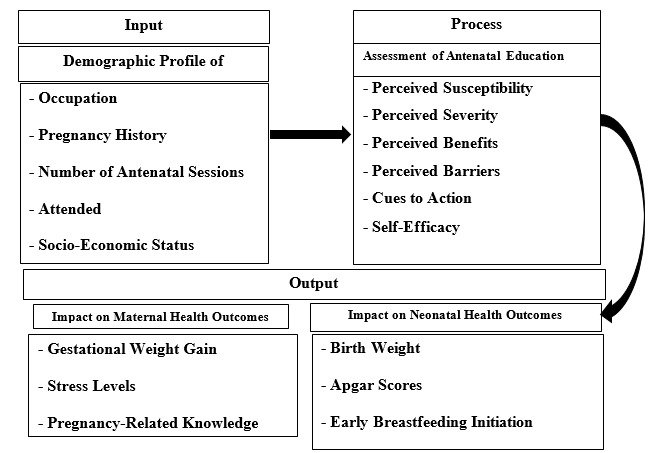Improving Maternal and Neonatal Health Outcomes of Women Through Deep Antenatal Education Analysis With Health Belief Model
Keywords:
Antenatal Instruction Programs, Maternal Self-Efficacy, Maternal Wellbeing, Neonatal Wellbeing.Abstract
This ponder investigates the adequacy of antenatal instruction programs in making strides maternal and neonatal wellbeing results, pivotal measurements for surveying advance towards Economic Improvement Objective 3. Despite restorative progressions, maternal and neonatal horribleness and mortality rates stay concerning, particularly in moo- and middle-income nations. Antenatal instruction programs, planned to prepare hopeful moms with basic information and aptitudes, are proposed interventions. While a few ponders appear stamped enhancements in maternal self-efficacy and infant care hones, others uncover constrained effect on key wellbeing markers. Understanding the components contributing to these results is pivotal. Socially delicate programs custom fitted to populaces and the mode of conveyance impact viability. Integration into broader healthcare models and continuous back encourage upgrades impact. A precise survey and blend of existing investigate uncover solid relationships between the number of antenatal sessions gone to and viability scores. Relapse examination underscores the positive relationship between participation and program adequacy, maternal wellbeing results, and neonatal wellbeing results. Expanding the number of antenatal sessions essentially upgrades both maternal and neonatal wellbeing results, with factual examination demonstrating a coefficient of 0.3292 for program adequacy, 0.3433 for maternal wellbeing results, and 0.3283 for neonatal wellbeing results, all with p-values < 0.005. These discoveries offer profitable experiences for policymakers and healthcare suppliers pointing to make strides open wellbeing mediations.

Published
How to Cite
Issue
Section
Copyright (c) 2024 Anchelie M. Refran, Sherry Stephanie C. Peralta, Sherylane T. Sajor, Carlos T. Rivera, Luragie A. Galo

This work is licensed under a Creative Commons Attribution 4.0 International License.




